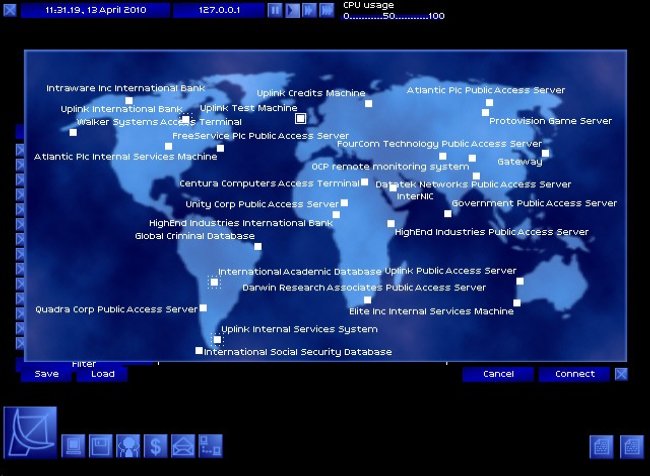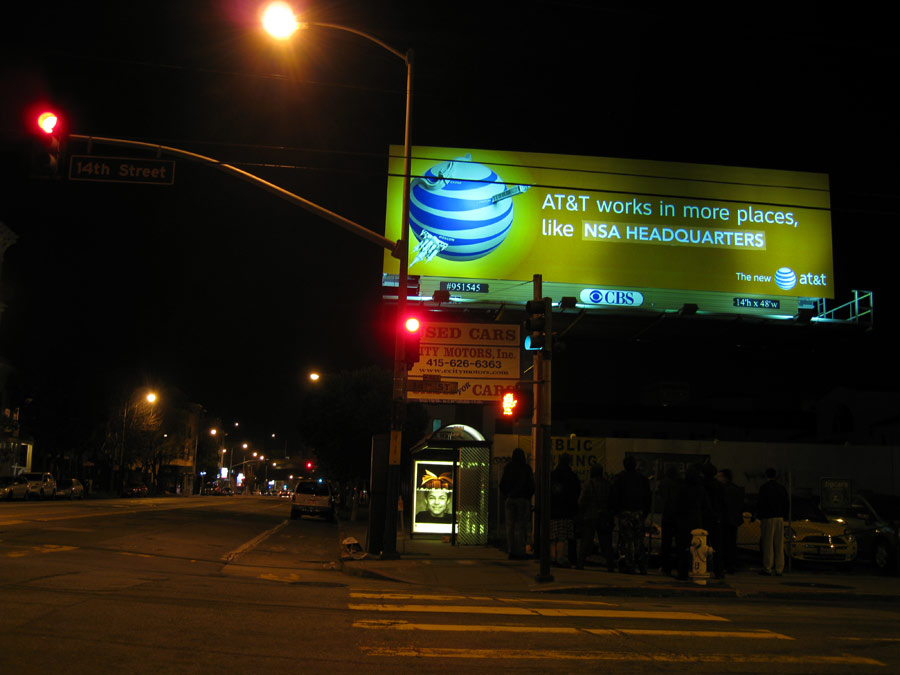August 25, 2009
War for the Internet
Source: New Scientist (Jim Giles), and everywhere else.

It’s ON. While the activities after the Iranian elections earlier this year have mostly quieted down, the Internet’s impact can still be felt from the Twitter messages that flowed from the Muslim theocracy crackdown on dissidents. The Internet showed how powerful it can be when the truth needed to get out…
… and that is why several countries (dictatorships mostly) do not like the Internet. They are currently engaged in a war against the net, seeking to control access to it, and possibly control of it.
The only thing they have to fear is… The Internet has become known as a form of “disruptive technology” because, as WikiPedia’s Disruptive Technology article points out: Disruptive technologies are particularly threatening to the leaders of an existing market, because they are competition coming from an unexpected direction. When you prefer to lead with an iron fist, competition is the last thing you want, and the global nature of the Internet magnifies that competition billions of times over as a global community of the common people (as opposed to controllable politicos) outside your stronghold are now turned against you.
The power of technology - such as blogs - meant that the world could no longer be run by “elites”, Mr (Gordon) Brown said.
For those type of tyrants, the only viable solution is to cut the cables of the Internet; Put up firewalls and filters to weed out such disruptions and the like:
Most of these actions are aimed at stifling political debate. “Political filtering is the common denominator,” says Helmi Noman of the Berkman Center for Internet and Society in Boston, who compiled the report. “It’s the main target.”
…
Governments also keep tabs on who is using the internet and what they are viewing. In March, newspapers in Saudi Arabia reported that police had started visiting internet cafes to ensure that owners had installed cameras to monitor users, as the country’s law requires. In Jordan, cafe owners have to record their customers’ names and monitor the sites they visit.Noman says that filtering and monitoring have become more widespread as the internet’s role in political activity has increased. “More activists are going online and more activists are being created online,” he says.
Monitoring has become more widespread as the internet’s role in political activity has increasedWhat’s happening in the region is echoed to some extent in most other parts of the world. Online users almost everywhere are subject to some kind of censorship, the ONI says.
Such activities range from the use of firewall blacklists to more personal Internet attacks. How personal? Just ask this Georgian blogger. You can find other such anti-Internet, or at least anti-blogging, threats like jail time and possible military strikes against bloggers if you search the net enough.
While more democratic nations don’t experience that type of political censorship (unless they watch Fox “News”), there have been more “subtle” ways to silence websites by calling “child pornography” like Australia’s recent (epically failed) attempt at Internet censorship. But politics and porn aside, there’s an even bigger threat to the Internet, in case you haven’t heard…
Don’t fuck with our profit margins!
BREAKING NEWS: The Pirate Bay has been (temporarily) taken offline by their ISP who was “threatened” with “legal action.” (TorrentFreak). They already have a new home (for now), though their tracking system is still down.
Ever since the Net exploded in the mid 90’s, everybody has been trying to make a profit off it. Not just the advert-perverts, but the ISPs who see themselves as “gatekeepers” of the Internet. They have been trying to throttle people’s use of the Internet by claiming that the bandwidth is running out, only they just want more of that bandwidth to force more adverts (and government propaganda) down our throats. And if they can’t do that, they’ll just let the NSAs tap whatever wires they want so they can call high-bandwidth users “terrorists.” That might free up some bandwidth and cut down on all the torrenting going on.
Speaking of torrents, do you really believe that media groups are losing billions because of torrent “piracy” and not because the shit they put out is… well, shit? Just as long as nothing threatens their profits… like Google Voice was about to do, and how bloggers were getting away with posting content from news sites without paying. Rupert Murdoch will see that bloggers pay dearly for that (content).

Freedom Fighters There have been some calls for a Digital Bill of Rights, but whether that would be any more effective in keeping people safe from the Gov-Telco-Media complex than a stash of high-powered firearms is questionable. Until we can get the GTM thugs offline permanently, best just keep all your drives and transmissions encrypted, and invest in firearms. In the meantime, I’m going to see if I can find more info about HP’s Darknet project.
Comments
August 25, 2009
downer said:
Nice! Maybe one day we can surf without filters or have service cut off. Extra curious and sadistic type people should go play Sims or something and leave real people alone.
Rofltown said:
Awesome article.
Michael Hafner said:
Good article; that’s a topic that keeps me concernced.
Therefore I’d like to invite you to participate in themashazine.com’s reserach in trust in onlinemedia - for now its just three short questions; I’d really appreciate your support.
http://www.themashazine.com/blog/kbex/nerds-on-trust
thanks a lot
Aurora said:
Um, the internet filter is still being pushed in Australia, they recently called the trial on a tiny portion of ISPs a success and are pushing ahead…
August 27, 2009
Frank Azzurro said:
Corporations own most of the major news outlets, which control most of what you see. You might see the occasional Prince Philip quote about overpopulation or a here-or-there Economist article challenging our notions on free health care, but for the most part, the internet is just a corporate wasteland, with far too many unsponsored, unseen ‘blogs’ of egomaniacs spouting on about their hipster lifestyle instead of doing something worthwhile with the technology.
Instead of blaming governments and corporations for doing what comes naturally when people allow them too much relevance, how about encouraging all the egomaniacal bloggers out there to write something worthwhile, join a local cultural group, and stop spending so much damn time on the computer?
August 29, 2009
Wr417h said:
How about this shit about a bill that gives the president complete internet control in an emergency? I haven’t read much into it but the idea sure does piss me off.
August 30, 2009
lorenzo said:
I think the problem is more subtle than that. Plain old filtering does not work, and modern “soft dictatorships” have evolved to avoid the creation of a common enemy against which “the people” can revolt.
In most modern states, where there is no dictatorship but an oligarchy owns and controls the media, censorship is pushed through the form of lawsuits. By pressing on ISPs with subpoenas and PATRIOT letters anyone with enough resources can have anything that can damage their interest removed from a website, or at least from the press.
Remember that most people still use tv/papers as their only source of information. Make something disappear from the mainstream media, and that thing does not exist any more unless you belong to a small minority of the educated population. Even so, your votes will never be enough. Furthermore, you don’t vote your own oligarch. You don’t vote who owns your media. You just have to hope their ad-based revenue moves away if they screw up.
To sum up - censorship is no longer the way forward, if you want to keep control of the population. What you need is media control, soft dictatorship, and fear of lawsuits. Look at Italy
September 4, 2009
Michael Hafner said:
…”You don’t vote who owns your media”… - Thats a very interesting thought.
Would people vote for information?
Would they choose balanced objective news?
Commercially, we do vote. And I’m not sure if that’s giving a good direction….
September 5, 2009
ilmondodeirobot said:
hack the planet!
September 14, 2009
Dutch European said:
The only ones that can save us are 4Chan and Russian Hackers
October 2, 2009
knotofwires said:
Firewalls, filters and technical barriers may well be implemented, but only as tools of a wider - much more threatening, and still utterly misunderstood - strategy.
The control of information - and thus influence - in the digital age.
MIT Professor Chomsky’s ideas of media influence, public relations and control of influence, “Manufacturing Consent” is based on his intellectual life in one of the most brilliant technical institutions in the world. In an increasingly technical world, his ideas and work on media influence have never been more relevant. This is not an understatement.
Just as the offline media world, particularly in America, has been successfully enveloped by a handful of huge corporations, the digital world is going to be next. You can be sure that the increasing importance of this relatively level playing-field; with its many fewer current barriers to information publication to a wide audience, is a major problem and threat, to those currently make money out of information; the large media corporates. They will - and currently are - throwing money at changing this landscape - and through this, changing the flow of information online so that it goes straight to their doorstep.
If you imagine the digital landscape as a large, flat, piece of metal, they are in the process of bashing large divisions - dents in it. Now if you picture casting handful of sand evenly onto the metal, with each grain of sand equalling the influence of one person - the sand will be sucked into those dents.
Search engines - mainly Google - have a unique power of casting this sand evenly over the landscape. Google make their money from online advertising, but they claim the authority of their search results are established as independently as possible..
Think! Your online information, through your independent search of new sources, is provided by one main search engine. Google. One source. How much power does that one corporation have on the influence of information? A huge amount!
Even if Google is totally objective and is casting the sand evenly in the first place- which it must be incredibly difficult, since its revenue model is based on online advertising - this makes Google the biggest target for those seeking to control information. Governments. International news corporations. Brands. It’s the biggest logical target!
Study search engine optimisation - the way in which corporations have been employing online marketing firms to artificially dent the online landscape through increasing the authority of an information source in the Google results.
Study network theory - the way which influence is mapped out online, and the way content is disseminated. Hyperlinks between websites - and therefore the flow of information and navigation online - can be accurately mapped out using network theory.
Do yourself a favour and think for yourself!
January 17, 2010
Steve Talbot said:
Nice screen shot from the video game Uplink >.>